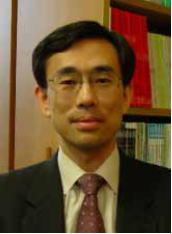 |
|
Dr. Yuichi Moriguchi
Director, Research Center for Material Cycles and Waste Management,
National Institute for Environmental Studies (NIES), Japan / Visiting Professor,
Graduate School of Frontier Sciences, The University of Tokyo.
Yuichi Moriguchi, who holds Dr. Eng., graduated from the Faculty of Engineering at Kyoto University
and joined the NIES in 1982. His research field covers the prevention of transport pollution, GHG emission inventory,
life cycle assessment, material flow analysis, and environmental indicators. He has engaged in the Japanese LCS project
as one of the team-leaders. In his early career, he had also worked for the Environment Agency of Japan
and for the OECD Environment Directorate in Paris. He has been appointed to the chairperson
of the Working Group on Environmental Information and Outlooks in OECD during 2003-2008,
and he is an initial member of the International Panel for Sustainable Resource Management. |
|
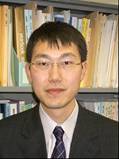 |
|
Dr. Junichi Fujino
Ph.D of Engineering.
Senior Researcher, Climate Policy Assessment Section, Center for Global
Environmental Research (CGER), National InstituteforEnvironmental Studies
(NIES), Japan.
Visiting Associate Professor, Japan Advanced Institute of Science and Technology
(JAIST) Adjunct instructor.
Tokyo University of Science 2000 Graduated Tokyo Univ. Energy and Environment
system Engineering, Energy, Economics, Environment Model Analysis.
2000-Joining AIM team.
2004-Scenario Team member and Manager, ''Low Carbon Japan 2050'' |
|
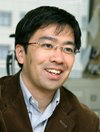 |
|
Prof. Norichika Kanie
Associate professor, Tokyo Institute of Technology (Tokyo Tech), Graduate School of Decision Science and Technology, Japan.
Prof. Kanie, born in May 1969, is an associate professor of Tokyo Institute
of Technology (Tokyo Tech), Graduate School of Decision Science and Technology.
His research areas include international relations and global environmental
politics. Especially Prof. Kanie put focus on institutional aspects on
climate change and transboundary air pollution in Asia. Prof. Kanie currently
serves a scientific steering committee member of IHDP Earth System Governance
Project. His recent publication includes "Emerging Forces in Environmental
Governance", Norichika Kanie and Peter Haas eds., United Nations University
Press (2004) and "2013 problem in international politics on climate
change ?Whether Japan can get a head start in development of international
system?-," (in Japanese), Sekai, 2008, 6. |
|
 |
|
Dr. Tae Yong Jung
Senior Economist, The Asian Development Bank (ADB), Philippines
His research areas are energy and environmental modeling, clean energy
financing. He has special interest in economic development and environmental concerns.
He was one of lead authors of IPCC Special Report on Emission Scenario (SRES).
He has been a visiting fellow at Pacific Northwest National Laboratory of USA,
Economic Research Institute of Kyoto University, and National Institute for Environmental Studies of Japan.
He was in Korea Energy Economics Institute. He joined Institute for Global Environmental Strategies (IGES), Japan in
1999, where he was a project leader for the Climate Policy Project. Before he joined the ADB, he worked at the World Bank where he was
involved in the World Bank's activity on 'clean energy and development: towards an investment framework'.
Dr. Jung received his Ph.D. in Economics from Rutgers University. |
|
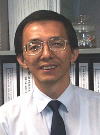 |
|
Prof. Fwa Tien Fang
Professor, the Department of Civil Engineering, National University of
Singapore, Singapore
He received his BEng from the National University of Singapore, MASc from
the University of Waterloo, Canada, and PhD from Purdue University, USA.
He is currently the Director of the Centre for Transportation Research,
National University of Singapore. Professor Fwa is active academically
and professionally in transportation engineering and transportation infrastructure
management. He is presently a Vice President of the International Society
for Maintenance and Rehabilitation of Transport Infrastructure, and a Board
Member of the East Asia Society of Transportation Studies. He was also
the founding President of the Intelligent Transportation Society (Singapore). |
|
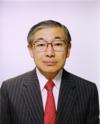 |
|
Prof. Keisuke Hanaki
Professor, Department of Urban Engineering, The University of Tokyo, Japan.
Dr. Keisuke Hanaki is Professor at Department of Urban Engineering and
Adjunct Professor at Integrated Research System for Sustainability Science
(IR3S), the University of Tokyo.
After completed doctoral program at the University of Tokyo in 1980, he
has worked at Tohoku University, Asian Institute of Technology (Thailand)
and the University of Tokyo. In addition to water environmental management
his research field covers holistic environmental management in urban area for
sustainability. Integrated analysis of emission reduction of green house gas from urban activity, mitigation of urban
heat island, solid waste and wastewater management for lower environmental
loading, clean development mechanism in urban area are his recent research
topics.
He is now President of Japan Society on Water Environment. He has been a lead author in water chapter of IPCC 2nd and 3rd assessment
report. He has recently received academic prizes from Japan Society on Water Environment
and Society of Environment Science, Japan. |
|
 |
|
Dr. Shobhakar Dhakal
Executive Director of the Global Carbon Project (GCP)- an international
scientific program hosted by NIES, Japan.
His interests are on system analyses of urban energy uses and urban carbon
emissions, de-carbonized urban development pathways and scenarios, city
climate policies, and their broader interactions with special focus on
Asian cities. He contributes to the Urban Taskforce of China Council for
International Cooperation on Environment and Development, Cities Modeling
Group of International Energy Agency, Global Energy Assessment, and International
Panel for Cities and Climate Change Assessment. He is also a visiting Associate
Professor of Graduate School of Environmental Studies of Nagoya University. |
|
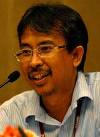 |
|
Dr. Rizaldi Boer
Bogor Agriculture University, Indonesia
Dr. Rizaldi Boer is a teaching staff at the Department of Geophysics and Meteorology
and just appointed as the Director of Centre for Climate Risk and Opportunity Management (CCROM)
of Bogor Agricultural University for the period of 2009-2013.
He got his PhD from University of Sydney in 1994. Since 1995 he actively involves in many regional research activities
related to climate variability and climate change.
He is now also a member of Task Force Bureau of the IPCC for the GHG Inventory.
Since 2001, he is frequently invited by the UNFCCC secretariat to be part of expert review team
of the National GHG Inventory of Annex 1 countries. |
|
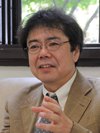 |
|
Prof. Jun Fujimoto
Professor, Research Center for Advanced Science and Technology (RCAST),
The University of Tokyo, Japan.
Dr. Jun Fujimoto has been a Professor in the Research Center for Advanced
Science & Technology, the University of Tokyo (UT) since 2002. His
research interests include: ecodesign of low carbon ICT society, social
system innovation process considering environmental consciousness, and
inverse manufacturing. Recently, he publised the book entitled,'Low Carbon
Lifestyle in 2050 -EcoDesign for ICT Society' In this book, he created
both `Techno- ontological Approaches` that involves understanding how ICT
affects people's behavior including mental/emotional conditions and finding
ways of integrating ICT with life-style, and also `Eco-Life Navigation
System` using ICT which guides people toward low energy and material resources
consumption. |
|
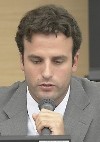 |
|
Mr. William Wills
Researcher at Center for Integrated Studies on Climate Change and the Environment,
UFRJ, Brazil.
CDM Consultant of the Ministry of Science and Technology, Brazil.
He received his M.Sc. in 2007 (Energy and Environmental Planning).He is now attending Ph.D. studies in Energy
and Environmental Planning at the Federal University of Rio de Janeiro. His
main research interests include biofuels, energy efficiency, the transport
sector, local and global environmental change and energy/greenhouse gases
scenarios. He is now working on greenhouse gases inventories for cities and
states in Brazil." |
|
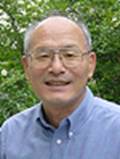 |
|
Dr. Shuzo Nishioka
Project Leader of “Japan Low Carbon Society Scenarios toward 2050”,
Senior Visiting Researcher, National Institute for Environmental Studies
(NIES),
Senior Research Advisor, Institute for Global Environmental Strategies(IGES),Japan.
PhD.(The University of Tokyo, engineering). Served as Professor of Tokyo
Institute of Technology, Keio University, Visiting Researcher of MIT, Executive
Director of the National Institute for Environmental Studies (NIES), Japan,
also as Coordinating Lead Author and Vice Chair of IPCCWGII since 1988.
Project leader of “Japan Low Carbon Society Scenarios toward 2050”, which
is research project to establish methodology for evaluating middle to long
term environmental policy options toward low carbon society in Japan. |
|
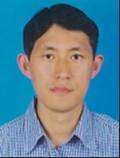 |
|
Dr. Jiang Kejun
Director of Energy System Analysis and Market Analysis Research Center,
Energy Research Institute, China.
He received his Ph. D in Tokyo Institute of Technology in 1999.
From 1993, Jiang Kejun began the research on climate change relative to energy policy analysis,
which focuses on energy technology policy assessment, energy supply policy assessment,
renewable energy development and energy conservation. Leading Integrated Policy Assessment Model for China (IPAC) team,
he is mainly working on policy assessment. Major focus includes energy policy, energy system, energy market analysis,
and climate change, local environment policies and international negotiation.
Since 1997, he has worked with IPCC for Special Report on Emission Scenario and Working Group III Third Assessment Report.
He is leader author for IPCC WGIII AR4 Chapter 3, and leader author for GEO-4 Chapter 2. |
|
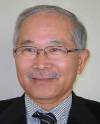 |
|
Dr. Haruki Tsuchiya
The President of Research Institute for Systems Technology, Japan
He founded it in 1979. He has worked in energy system analysis and published books and many articles
on future energy scenarios emphasizing efficiency improvement and renewable energy. His energy concept is
''To Energy Cultivating Civilization based on renewable energy from Energy Hunting Civilization digging fossil fuels underground''.
He was endowed the award certificate of the Nobel Peace Prize 2007 from IPCC for his contribution
to 2nd working Group of IPCC 2nd report in 1995. He worked as a member of several national committees on future energy technology.
He is an advisor to Low Carbon Society Project of National Institute for Environmental Studies.
He received B.E, M.E and Dr of Engineering at University of Tokyo. |
|
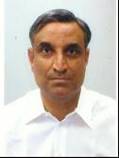 |
|
Prof. Priyadarshi R. Shukla
Professor in Public Systems Group, Indian Institute of Management, India.
P.R. Shukla is a Professor in Public Systems Group at the Indian Institute
of Management, Ahmedabad, India. He holds a Ph.D. from Stanford University.
He is a consultant and advisor to Governments and international organizations.
He has been a member of official Indian delegation to the Conference of
Parties to the UNFCCC. Prof. Shukla is a member of several international
teams working on energy and environment modeling and policy studies. He
is a lead author of several international reports including eight IPCC
reports. His publications include twelve books and numerous publications
in international journals in the areas of development, energy, environment
and climate change policies. |
|
 |
|
Ms. Megumi Muto
Research Fellow, JICA Research Institute, Japan International Cooperation Agency, Japan
Before joining JICA Research Institute in 2008, Ms. Muto was the Senior
Economist and Director of JBIC Institute, Japan Bank for International
Cooperation. Her research interests include effects of physical infrastructure
on poverty dynamics, market integration, human resource outcomes, and agglomeration
of industries. She received her Master in Public Affairs from Woodrow Wilson
School, Princeton University, and is currently a Ph.D. candidate at the
National Graduate Institute for Policy Studies. |
|
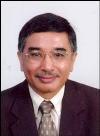 |
|
Prof. Ram Manohar Shrestha
Professor, Asian Institute of Technology (AIT), Thailand.
Ram Shrestha is currently a professor of energy economics at the Asian Institute of Technology (AIT), Thailand.
Professor Shrestha serves as the Editor of International Energy Journal
and as a member of the Editorial Board of Journal of Energy Engineering of the American Society of Civil Engineers (ASCE).
Previously, he also served an Associate Editor of Energy-The International Journal and Energy Economics.
He is a coauthor of 3 books (namely, Energy Policies in Asia, Bio-coal Technology and Economics,
and Baseline Methodologies for Clean Development Mechanism Project: A Guidebook)
and has published extensively in refereed international journals
including Journal of Environmental Economics and Management, Energy Economics,
The Energy Journal, Resource and Energy Economics, Energy Policy, and Climate Policy.
He is a recipient of The Energy Journal’s Best Paper Award from International Association for Energy Economics (IAEE). |
|
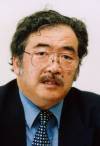 |
|
Mr. Taka Hiraishi
Member of Board of Directors and Senior Consultant, Institute for Global
Environmental Strategies (IGES), Japan
Obtained M.Sc in 1968, and worked in Ministry of Labour, (then) Environment
Agency, Embassy of Japan in Kenya, OECD Secretariat (Environment Directorate),
and UNEP (1989-1998). Since 1999, he works, among others, (part-time) for
IGES, and is Co-chair of the IPCC Inventory Programme and since 2002 an
IPCC Bureau Member. |
|
 |
|
Dr.Jae Edmonds
Chief Scientist and Laboratory Fellow at the Pacific Northwest National
Laboratory’s (PNNL) Joint Global Change Research Institute, and Adjunct
Professor of Public Policy at the University of Maryland at College Park.
He is the principal investigator for the Global Energy Technology Strategy
Program to Address Climate Change, an international, public-private research
collaboration. His research in the areas of long-term, global, energy,
economy, and climate change spans three decades, during which time he published
several books, numerous scientific papers and made countless presentations.
His most recent book, Global Energy Technology Strategy, Addressing Climate Change,
distills more than a decade of research on the role of technology in
addressing climate change. Dr. Edmonds has served in the capacity of Lead
Author on every major IPCC assessment to date and presently serves on the
IPCC Steering Committee on "New Integrated Scenarios". He serves
on numerous panels and advisory boards related to energy, technology, the
economy and climate change. His received his Ph.D. in the field of Economics
from Duke University in 1975. |
|
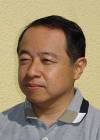 |
|
Dr. Yoshiki Yamagata
Special Senior Researcher, Center for Global Environmental Research (CGER),
National Institute for Environmental Studies (NIES), Japan.
Yoshiki Yamagata received the B.S. degree in system science from the University
of Tokyo, in 1985, and the Ph.D. degree from the University of Tokyo, in
1997. From 1991, he joined the National Institute for Environmental Studies,
Japan, in 1991, and, since then, he was studying climate change issues
as a senior researcher, research manager and currently special senior researcher
in the Center for Global Environmental Research. His major research fields
include remote sensing, ecosystem modeling, and land use scenario analysis.
He received the first Oze prize in 1998 and serving as an editor for Climate
Policy, Environmental Science & Policy and Applied Energy journals. |
|
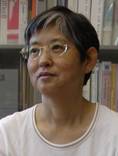 |
|
Dr. Mikiko Kainuma
Project Leader, Climate Policy Project, Center for Global Environmental
Research (CGER),
National Institute for Environmental Studies (NIES), Japan.
Mikiko Kainuma, a project leader of Climate Policy Assessment Project at NIES,
is conducting an integrated analysis of climate change mitigation strategies by using AIM model,
which she has developed with Kyoto University and several other institutes across Asia.
AIM started as a tool to evaluate policy options to mitigate climate change and its impacts,
and now extended its function to analyze various environmental issues.
Dr. Kainuma received her B.S., M.S., and Ph.D. degrees in applied mathematics and physics from Kyoto University in Kyoto, Japan.
She is a Lead Author of IPCC Fourth Assessment Report and UNEP/GEO4. |
|
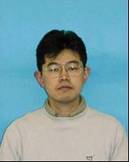 |
|
Dr. Toshihiko Masui
Head of the Integrated Assessmant Section, Social and Environmental System
Division, National Institute for Environmental Studies (NIES), Japan.
Toshihiko Masui is a head of the Integrated Assessment Section, Social
and Environmental Systems Division at the National Institute for Environmental
Studies (NIES). He is a member of the Asia-Pacific Integrated Model (AIM)
team in NIES, and in charge of development of the emission module in the
AIM model. He is also Associate Professor of Social Engineering at Tokyo
Institute of Technology, in Japan. He received a doctoral degree from Osaka
University. |

